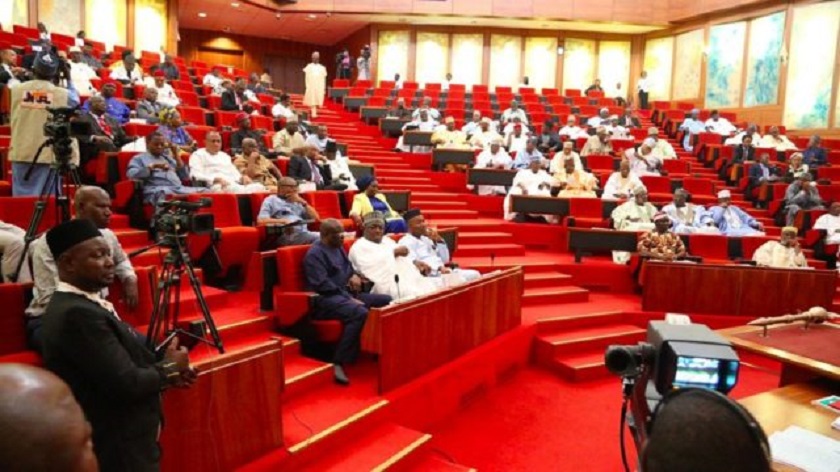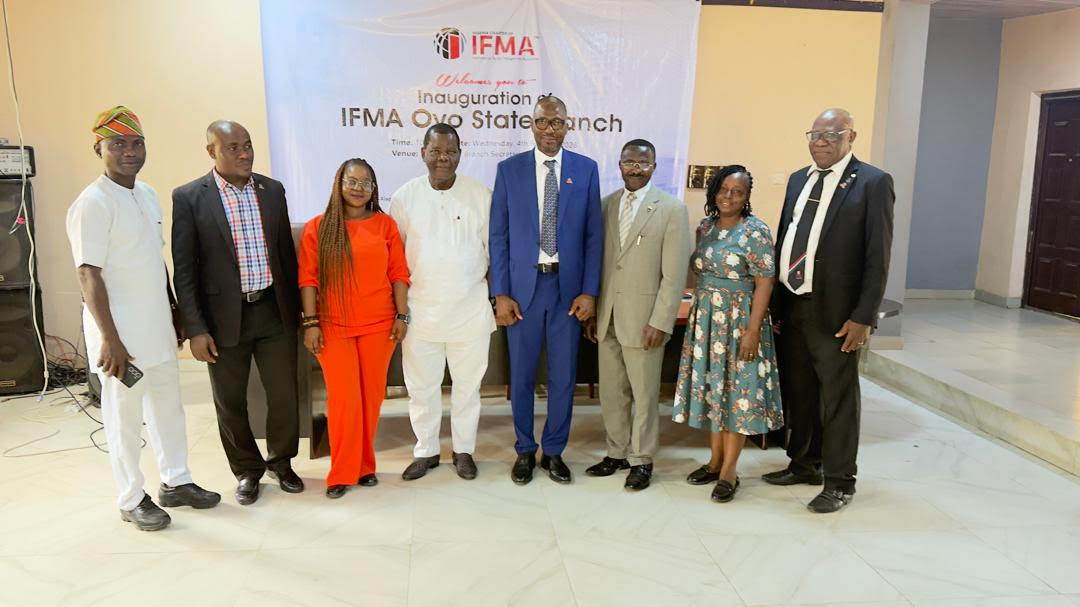General
Why DisCos Can’t Meet Obligations—EMRC

By Modupe Gbadeyanka
The Country Director, Energy Market and Regulatory Consultants (EMRC), Mrs Rahila Thomas, has explained why electricity distribution companies in Nigeria fondly called DisCos, are not performing optimally.
Mrs Thomas, speaking in Abuja at a one-day round table discussion organised by the Nigerian Senate on Addressing Nigeria’s Power Problems, stated that these electricity firms were cash-strapped.
“DisCos are not collecting sufficient cash to meet upstream obligations,” Mrs Thomas at the event while giving a presentation on the evolution of Nigeria’s electricity supply industry.
Chairman of the Senate Committee on Power, Mr Gabriel Suswam, said at the forum that, “The challenges in the power sector can be categorized into five crowd areas: Institution and Governance, Infrastructural, Political, Legislative and Environmental.”
He stated that, “The workable solution may be holistic and should take into account these broad challenges. We are here today to find solutions to electricity challenges in our country.”
Speaking further, he explained that the roundtable was organised as a result of a motion brought to the Senate on addressing Nigeria’s power problems on Tuesday, November 19, 2019, noting that the Senate resolved to hold the programme to address these issues and provide working solutions.”
In his contribution, the Minister of Power, Mr Saleh Mamman, stated that, “The most important factor in addressing the power sector is building synergy and team spirit. We have identified this at the Ministerial level. I wish all of us a fruitful resolution that will help in solving these problems.”
His counterpart in the Ministry of Finance, Budget and National Planning, Mrs Zainab Ahmed, who was represented by Mrs Evelyn Amobi, lauded the commitment of the legislative to work with the executive to resolve the issues affecting the power sector.
She assured that, “All the decisions that will be made here will have our full support and be taken to the executive.”
Senate Leader, Mr Yahaya Abdullahi, said at the forum that, “A lot of resources have been used in finding solutions into problems that have put this country backwards.
“It is the concern of the Senate to look into each other’s eyes and say the truth. We are here to own up to the issues that face this particular centre and work to find solutions to the major problem that affects the delivery of power to Nigeria.”
Senate President, Mr Ahmad Lawan, while speaking at the event, noted that, “If there is any single sector of our economy that is so important and so challenged, it is the power sector.”
He said, “This is a sector that needs a declaration of emergency. This is an opportunity for us to discuss the solutions and the way forward. The truth is we all know what is wrong, what we really need to do is to have the political will to take on the challenges frontally.”
“From the electricity power reform of 2005 and the privatization of Discos, with what is happening today, we know that everything is wrong. The time has come for us to have courage.
“We have signed into AFCTA and I believe what will give us an edge is to have a competitive environment. Our industries must be able to produce things that will compete favourably to other products in Africa but we are not in that position today. Even our citizens who have capital would rather relocate to Ghana and produce what they want to sell and bring it to Nigeria,” he said further.
Continuing, Mr Lawan said, “If we went wrong with the privatization of discos and Gencos, the time has come to look into it in the interest of our country. Definitely something is not working right. This round table is an idea of the senate that we should come together, talk amongst ourselves, ours is of course legislative intervention but we are also part of government. Whatever that is required to support the executive to amend the power sector reform, we are prepared to do that.”
Concluding, the Senate President said, “We owe this country obligation to provide employment opportunities for our teeming population. I think this round table at least is an opportunity to come up with measurable roadmaps to take the power sector to the next level.
“I believe that we have to declare a state of emergency on power and courageous decisions must be taken by government. I believe that this is one interaction that will not disappear after this session we want to take appropriate actions.”
General
NERC Unveils 3-Step Guide for Resolving Electricity Complaints

By Adedapo Adesanya
The Nigerian Electricity Regulatory Commission (NERC) has introduced a streamlined three-step process to help electricity consumers address common issues like power outages, estimated billing, faulty meters, and voltage fluctuations.
In a public advisory shared on its X handle on Tuesday, the electricity sector regulator emphasised that customers should begin by contacting their respective electricity Distribution Companies (DisCos), which serve as the primary point of contact for technical and billing problems.
Consumers are urged to secure a complaint reference number and maintain records of all interactions for efficient follow-up.
The advisory outlines the process as follows: “Contact your DisCo’s customer care – This is the first step for all technical or billing issues;
“Escalate to State Electricity Regulator (SER) – If unresolved, and the consumer is in a state that has transitioned to an SER;
“Reach NERC Call Centre – For consumers in non-transitioned states or needing further assistance. Contact options include 0201 344 4331, 0908 899 9244, or [email protected],” it said.
“We’re here to make sure your complaint is heard and addressed,” the advisory concluded, aiming to empower consumers amid ongoing challenges in Nigeria’s power sector.
This guidance comes as electricity consumers continue to grapple with service disruptions and billing disputes, highlighting NERC’s efforts to improve accountability across DisCos and state regulators.
General
Senate Passes Electoral Act Amendment Bill After Mild Row

By Adedapo Adesanya
The Senate passed the Electoral Act, 2022 (Repeal and Re-Enactment) Bill 2026 on Tuesday after overcoming a rowdy session that saw lawmakers at loggerheads.
The issue in the upper chamber stemmed from a division over Clause 60 raised by Mr Enyinnaya Abaribe, a member of the opposition party, African Democratic Congress (ADC), from Abia South.
The Senate President, Mr Godswill Akpabio, stated that he believed the demand had previously been withdrawn, but several opposition senators immediately objected to that claim.
Citing Order 52(6), the Deputy Senate President, Mr Barau Jibrin, argued that it would be out of order to revisit any provision on which the Senate President had already ruled.
This submission sparked another uproar in the chamber, during which Mr Sunday Karimi had a brief face-off with Mr Abaribe.
The Senate Leader, Mr Opeyemi Bamidele, then reminded lawmakers that he had sponsored the motion for rescission, underscoring that decisions previously taken by the Senate are no longer valid, maintaining that, consistent with his motion, Mr Abaribe’s demand was in line.
Mr Akpabio further suggested that the call for division was merely an attempt by Mr Abaribe to publicly demonstrate his stance to Nigerians. He sustained the point of order, after which the Abian lawmaker rose in protest and was urged to formally move his motion.
Rising under Order 72(1), Mr Abaribe called for a division on Clause 60(3), specifically concerning the provision that if electronic transmission of results fails, Form EC8A should not serve as the sole basis, calling for the removal of the proviso that allows for manual transmission of results in the event of network failure.
During the division, Mr Akpabio directed senators who supported the caveat to stand. He then asked those opposed to the caveat to rise, to which 15 opposition senators stood.
However, when the votes were counted, the Senate President announced that 15 senators did not support the proviso, while 55 senators voted in support.
Earlier, proceedings in the Senate were momentarily stalled as lawmakers began clause-by-clause consideration of the Electoral Act, 2022 (Repeal and Re-Enactment) Bill 2026, following a motion to rescind the earlier amendment.
The motion to rescind the bill was formally seconded on Tuesday, paving the way for the upper chamber to dissolve into the committee of the whole for detailed reconsideration and reenactment of the proposed legislation.
During the session, the Senate President, Godswill Akpabio, reeled out the clauses one after the other for deliberation.
However, the process stalled when at clause 60, Mr Abaribe raised a point of order, drawing immediate attention on the floor.
This soon caused the session to move into a closed-door session.
Before rescinding the Electoral Act, the red chamber raised concerns over the timing of the 2027 general elections and technical inconsistencies in the legislation.
Rising under Order 52(6) of the Senate Standing Orders, the Senate leader, Opeyemi Bamidele, moved the motion to reverse the earlier passage of the bill and return it to the Committee of the Whole for fresh deliberations.
He explained that the development follows the announcement by the Independent National Electoral Commission (INEC) of a timetable fixing the 2027 general elections for February 2027, after consultations with the leadership of the National Assembly.
He stated that stakeholders had raised concerns that the proposed date conflicts with the provisions of the amended law, particularly the requirement that elections be scheduled not later than 360 days before the expiration of tenure.
He further noted that upon critical review of the passed bill, the 360-day notice requirement prescribed in Clause 28 could result in the scheduling of the 2027 Presidential and National Assembly elections during the Ramadan period.
According to him, holding elections during Ramadan could negatively affect voter turnout, logistical coordination, stakeholder participation, and the overall inclusiveness and credibility of the electoral process.
The motion also highlighted discrepancies discovered in the Long Title and several clauses of the bill, including Clauses 6, 9, 10, 22, 23, 28, 29, 32, 42, 47, 51, 60, 62, 64, 65, 73, 77, 86, 87, 89, 93, and 143. The identified issues reportedly affected cross-referencing, serial numbering, and internal consistency within the legislation.
General
IFMA Nigeria Gets Branch in Oyo, Picks Adejumo Olusola Babatunde as Coordinator

By Modupe Gbadeyanka
A new branch of the International Facility Management Association (IFMA) Nigeria Chapter has been established in Oyo State, with Mr Adejumo Olusola Babatunde chosen as Coordinator.
The organisation set up an arm in the South-West state in a bid to expand its footprint in the country. Mr Babatunde will be assisted by other executive committee members, including Mr Ajiboye Olusola Akeem as Secretary, and Mrs Adeniran Olaide as Treasurer.
At the inauguration of the branch at the Nigerian Society of Engineers (NSE) Secretariat in the Akobo area of Ibadan, the Oyo State capital, the president of IFMA Nigeria, Mr Sheriff Daramola, expressed delight at the successful inauguration of the branch and commended members for their commitment to the growth of facility management in Nigeria.
He highlighted IFMA’s global heritage, noting that the association is supporting over 25,000 members in more than 140 countries worldwide. Mr Daramola emphasised IFMA’s strong global network, the world’s largest and most widely recognised association for facility management professionals, headquartered in the United States and its growing influence in Africa, the Middle East and Europe.
“IFMA members have taken positions of authority across federal, state, and private institutions; IFMA Nigeria is positioned to ensure our professionals are the first choice for global investors entering the Nigerian market,” he stated.
The Legal Adviser of IFMA, Nigeria, Mr Sola Fatoki, who shared this sentiment, said, “Since 1997, when IFMA Nigeria was established, the association has equipped facility management professionals with integrated knowledge spanning human behaviour, infrastructure, and the built environment.”
He encouraged engineers, architects, surveyors, ITC, Technology innovators, data analysts and allied professionals to see IFMA as their professional home and outlined the functions and responsibilities of branch executive committees.
In his remarks, Mr Babatunde expressed gratitude to the national council for the opportunity to serve and pledged to ensure the success of the branch, focusing on unity and the professional advancement of stakeholders in the region.
-

 Feature/OPED6 years ago
Feature/OPED6 years agoDavos was Different this year
-
Travel/Tourism10 years ago
Lagos Seals Western Lodge Hotel In Ikorodu
-

 Showbiz3 years ago
Showbiz3 years agoEstranged Lover Releases Videos of Empress Njamah Bathing
-

 Banking8 years ago
Banking8 years agoSort Codes of GTBank Branches in Nigeria
-

 Economy3 years ago
Economy3 years agoSubsidy Removal: CNG at N130 Per Litre Cheaper Than Petrol—IPMAN
-

 Banking3 years ago
Banking3 years agoSort Codes of UBA Branches in Nigeria
-

 Banking3 years ago
Banking3 years agoFirst Bank Announces Planned Downtime
-

 Sports3 years ago
Sports3 years agoHighest Paid Nigerian Footballer – How Much Do Nigerian Footballers Earn












